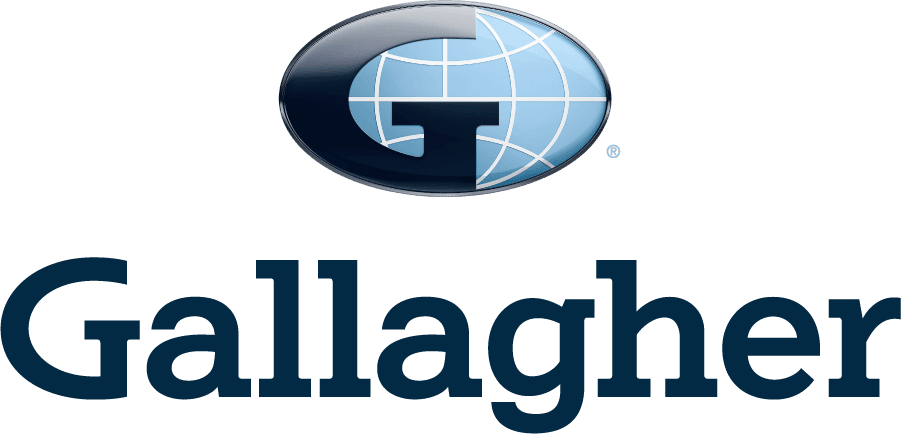July 2024
Table of Contents
- Decrease in workplace accidents
- Development of the basic pension supplement introduced in 2021
- Pension Security Association (PSVaG): Increase in insolvencies
- Reform of the Occupational Pensions Strengthening Act
- Jurisprudence I: Continued employment while receiving a pension
- Jurisprudence II: Contribution obligation in statutory health insurance for direct insurance taken over by the employee
- Fringe Benefit “Family Service” – Support for Employees in Special Life Situations
- From HR Practice: Handling the New Funding Limits for Capital-Forming Benefits
Decrease in Workplace Accidents and Fatalities, but Increase in Commuting Accidents
The German Statutory Accident Insurance has reported a further decline in workplace accidents. The number of reportable workplace accidents in 2023 dropped to an all-time low of 783,426 accidents. This corresponds to a decrease from 18.3 to 18.1 reportable accidents per 1,000 full-time workers. The number of legally insured individuals who died due to workplace and commuting accidents also decreased to 599. However, there was a 6.4% increase in commuting accidents, rising to 184,355.

Bettina Barz
bettina.barz@profion.de
Development of the Basic Pension Supplement Introduced in 2021
Since 2021, recipients of a statutory pension have had the option to receive a basic pension supplement. The prerequisite is that, despite long-term employment, only a small pension is drawn due to below-average earnings. Other income is also taken into account. According to the German Pension Insurance, of 952,658 retirees who received a statutory old-age pension for the first time, 166,557 fell under this regulation due to their low pension amount, i.e., about one in six. However, due to the income assessment, only 75,785 of these new retirees actually received the basic pension supplement, meaning less than half of the low pension recipients.

Bettina Barz
bettina.barz@profion.de
Pension Security Association (PSVaG): Increase in Insolvencies, but Stable Contribution Rate
The PSVaG has indicated an increase in insolvencies. The number of insolvencies leading to a PSVaG obligation for securing pension entitlements is already 26% above the previous year’s level. The number of ongoing pension payments and non-forfeitable entitlements to be secured due to insolvency is also a quarter higher than the previous year. The associated expenditure increased by about 50% compared to the previous year. Nevertheless, the PSVaG expects the contribution rate for 2024 to remain at the previous year’s level of 1.9 per mille. The reasons include positive developments in the capital markets, leading to an increase in the available reserves for contribution refunds. Additionally, the insolvency situation at the end of 2023 was more favorable than expected. Overall, this reduces the necessary contribution rate by 1.6 per mille points, so the previous year’s rate can currently be maintained. However, the PSVaG explicitly points out that the occurrence of major damages during the year could lead to an increase in the contribution rate.

Josef Pflieger
josef.pflieger@profion.de
Reform of the Occupational Pensions Strengthening Act
In addition to the Pension Package II (see Servus Newsletter from May), the federal government has now also submitted the amendment of the Occupational Pensions Strengthening Act for departmental consultation. However, it has been three years since the governing parties committed to improving the conditions for occupational pension provision in their coalition agreement. The content of the draft law by the Federal Ministry of Labor and Social Affairs after consultation with other ministries is usually subject to some uncertainty. At least it is gratifying that the cash-out of entitlements is to be made more flexible. It is proposed to double the cash-out limit from 1% to 2% of the reference value according to § 18 SGB IV. In 2024, this would allow pension entitlements up to a height of 70.70 euros per month, instead of the previous 35.35 euros. The administrative effort for such small entitlements could thus be reduced in the future. It remains to be seen skeptically how the changes to the details of the social partner pension introduced with high expectations in 2018 will bring it out of its niche. So far, there is no indication that the main design flaws of the social partner pension have been addressed. Despite the planned minor corrections to the social partner pension, support funds are likely to remain the more suitable solution for most companies to secure their employees.

Norbert Rutzmoser
norbert.rutzmoser@profion.de
Jurisprudence I: Continued Employment while Receiving a Pension
We have already reported several times on the newly created possibilities that have arisen due to the complete elimination of earning limits for early retirement, opening new ways for a flexible and individually and operationally adapted transition into retirement (see Servus Newsletter May). However, the situation remains controversial and unsatisfactorily regulated in pension law when it comes to full retirees who continue to work. Full retirees’ salaries are exempt from contributions. However, due to a special provision in § 172 Abs. 1 SGB VI, the employer still has to pay the employer’s share to the pension insurance. According to previous interpretations of the regulations, this employer payment does not increase the pension entitlements of the employee for whom it was paid, but rather becomes general income for the pension insurance. The Hessian State Social Court has now joined the view of the insurer in a legally questionable decision (Hessian LSG, Az. L 2 R 36/23, decision of 23.04.2024). The court argued that the employee could have opted for full contribution liability (including the employee’s share) and thus secured the employer’s share. This is anecdotal because this option to waive insurance freedom only existed from 1.1.2017, while the employment periods in question started from 1.6.2014.
More seriously, the LSG also did not recognize any constitutional concerns. Instead, it referred to the legislators’ repeated justification that the collection of contributions with a special character, which do not benefit the employee from whose wages they are derived but the insurance community in general, is permissible: Only this way can competitive advantages for these employers be prevented, and incentives to employ pensioners be avoided. These arguments apply unchanged even if the employer’s contribution obligation remains but corresponding entitlements are acquired. Crucially, under the principle of equal treatment in Article 3 of the Basic Law, it seems imperative not to subject equal wage payments to different social security contributions so that ultimately less remains for one group. Regardless of the legal considerations for applying the current legal regulation, it also seems questionable if one group (employees with early retirement) has explicitly changed pension regulations to enable this, while regulations remain cemented for another comparable group (employees with full retirement) that make this difficult. This contradicts recent statements by the federal government in the context of the Pension Package II to facilitate working conditions in old age. It will be interesting to see which side corrects the questionable regulation faster: the Federal Constitutional Court or the legislator.
Mathias Thiel
mathias.thiel@profion.de
Jurisprudence II: Contribution Obligation in Statutory Health Insurance for Direct Insurance Taken Over by the Employee
According to a decision by the Federal Social Court (judgment of April 23, 2024, Az. B 12 KR 4/22 R), in the event of early termination of direct insurance, the part of the surrender value attributable to the employer’s contributions is considered a contributory income under statutory health insurance. In the case at hand, the direct insurance was first transferred to the employee after termination of employment and then continued by the employee before it was eventually terminated and the surrender value was paid out.
Mathias Thiel
mathias.thiel@profion.de
Fringe Benefit “Family Service” – Support for Employees in Special Life Situations
A family service offered by the employer supports employees with questions or problems in ‘special’ and specific situations in their professional and private lives. Providers usually offer various service modules from which the employer can choose in order to best fit their employee’s needs. The following three services are typically offered and described in more detail below.
Finding the right care for their children is a major challenge for many parents. A family service can provide parents with targeted support in their search and provide information on all forms of childcare, as well as tax and financial considerations, whether-or-not parents are looking for regular or short-term care.
A family service can also be a great support in the search for care facilities for relatives in need of care, providing comprehensive advice on various care solutions and their financing options.
Finally, immediate help can be provided in the event of psychological stress caused by, for example – excessive demands in everyday family and professional life, etc., through discussions with experienced psychotherapists and social education workers.
The costs for counseling and placement services are usually covered by the employer in full. This is because, generally speaking, work-life balance is an important feature of employer attractiveness and therefore Employers are increasingly keen on offering versatile work-life balance arrangements, with flexible working hours and additional services to support childcare or elderly care, as well as mental and emotional wellness.

Christina Demmien
christina.demmien@profion.de
From HR Practice: Handling the New Funding Limits for Capital-Forming Benefits
Even if employers do not financially support their employees’ savings plans regarding capital-forming benefits (VL or VWL), there are still administrative duties that arise from this. In the following, we outline the essential points of capital-forming benefits to promote understanding and handling within normal and compliant HR practice.
Capital-forming benefits (VL or VWL) are financial contributions that the employer invests in a specific form of savings for the employee. The investment options are regulated by the 5th Capital Formation Act and include investments in a VL bank savings plan, a VL fund savings plan, a VL building savings contract, or a mortgage repayment. The state supports employees in capital formation through a so-called employee savings allowance. While state support has played a rather minor role due to low-income limits, these limits have been more than doubled starting in 2024. Singles with a gross income of up to €40,000 (2024) and married couples or individuals in a registered civil partnership with a gross income of up to €80,000 (2024) are now eligible for support, with an annual VL savings amount of up to €470 per person. Employees apply for the employee savings allowance through their income tax return at their tax office. Depending on the chosen form of investment, the maximum amount of the employee savings allowance is €123 per year per person (investment mix).
Employers can subsidize VL, but they are not required to; in the event of a job change, there is no obligation to continue the previous employer’s subsidy. It is advisable to agree on VL payments only after the probationary period. The employer subsidy is limited to a maximum of €40 or a minimum of €6.65 per month and, if granted, must be the same for all recipients. Regardless of any subsidy, the employer is obliged to transfer the amount from the employee’s net salary to the account of the contract partner. If an employer subsidy is granted, the employee’s gross salary increases by the amount of the subsidy. Taxes and social security contributions apply. The employee is responsible for applying for the employee savings allowance. The VL contribution can be increased by the employee at any time.

Christina Demmien
christina.demmien@profion.de
Are you missing a topic or would like to share your feedback with us?
Let us know!








